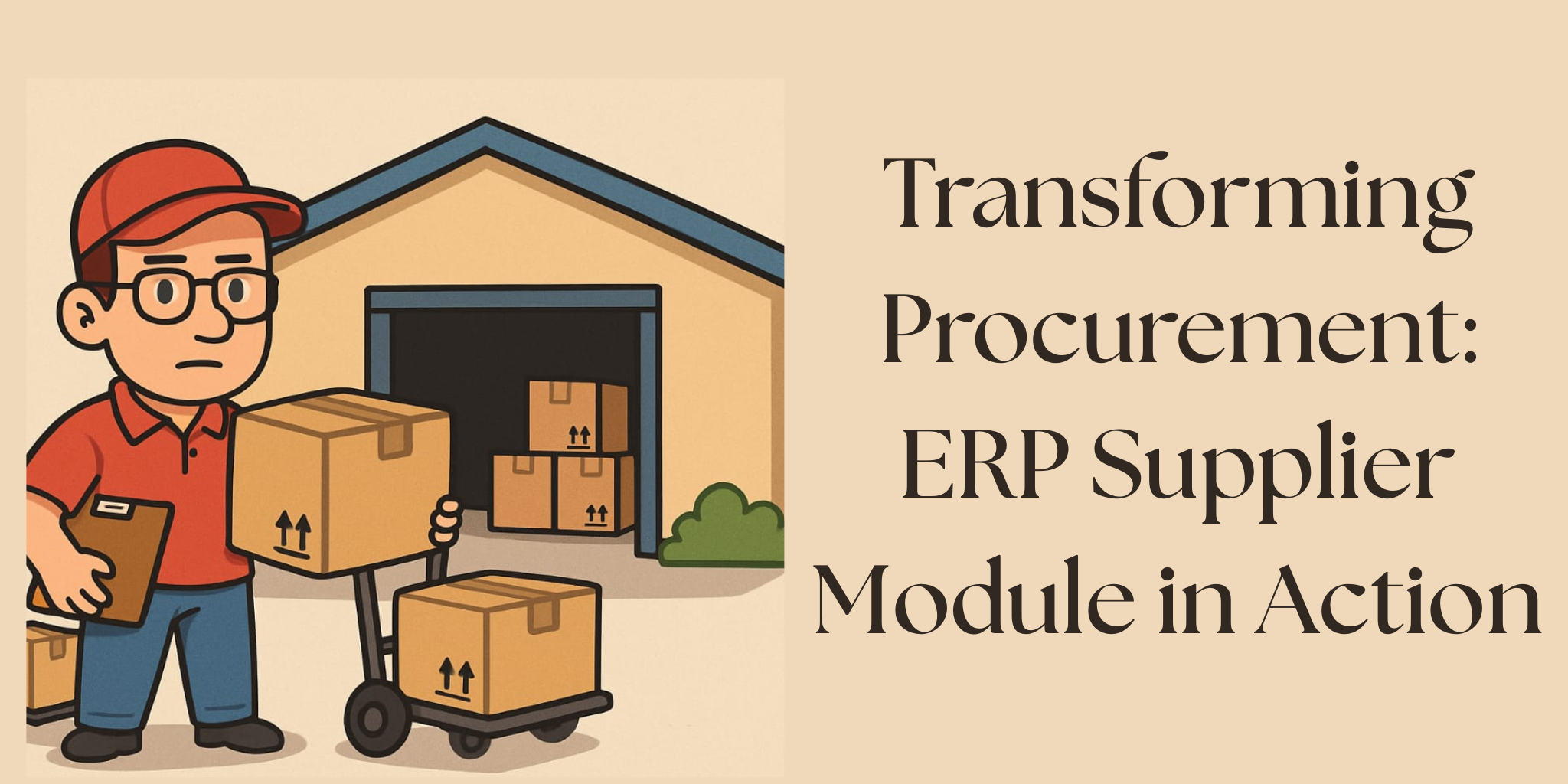
In an age where automation is the new normal, businesses can no longer afford outdated supply chain practices. Gone are the days of scattered spreadsheets and slow vendor approvals. Modern organizations are embracing AI-powered ERP supplier modules—not just to streamline procurement, but to drive growth, reduce costs, and create a single source of truth for smarter decisions. So, why is the supplier module in an ERP system such a game-changer? Let’s explore how AI integration, organizational growth, management insights, and supplier control come together to revolutionize business operations.
How AI Makes Supplier Modules Smarter—and More Cost-Efficient
AI is transforming the supplier module from a basic transactional tool into an intelligent ecosystem. Here’s how:
- Predictive Analytics: Machine learning predicts when to reorder and from whom—cutting down on overstocking and emergency purchases.
- Automated Vendor Scoring: AI continuously evaluates supplier performance on delivery, cost, and quality—ensuring you’re always working with the best.
- Smart Alerts & Bots: Instant updates on late deliveries or pricing anomalies help teams act fast and avoid losses.
- Fraud Detection: AI spots unusual patterns in billing or orders, preventing costly errors and scams.
The result? Lower procurement costs, fewer manual errors, and a more efficient supply chain—all while freeing your team to focus on strategy, not spreadsheets.
Driving Business Growth with Intelligent Supplier Management
A well-managed supplier ecosystem directly fuels company growth. When supplier processes are optimized:
- Procurement becomes faster and leaner, leading to improved margins.
- Teams can focus on building strategic partnerships, not chasing paperwork.
- Inventory levels are more accurate, reducing stockouts and excess.
- Vendor relationships become more collaborative, enabling innovation and cost-saving ideas.
By turning supplier data into actionable insights, the ERP module helps businesses scale smarter—not harder.
One Dashboard. All Insights.
Executives today don’t have time to dig through reports—they need answers at a glance. That’s why ERP systems now offer real-time dashboards that integrate supplier data across the organization.
With a single, customizable dashboard, management can:
- Monitor supplier KPIs and contract performance.
- Track spending patterns and negotiate better deals.
- Get instant alerts on delays, compliance issues, or rising costs.
- Align procurement goals with financial and operational targets.
It’s not just about visibility—it’s about intelligent control that empowers better decisions across departments.
Why the Supplier Module Still Matters at the Core
Even with AI and dashboards, the foundation remains the same: the supplier module is the backbone of the supply chain. It simplifies everything from vendor onboarding and contract management to order processing and payment tracking.
Its importance lies in:
- Creating a centralized system for all supplier data.
- Ensuring transparency and accountability.
- Improving compliance and reducing procurement risks.
- Speeding up every stage of the supply cycle.
In short, it’s the digital infrastructure that ensures every purchase supports larger business goals.
Final Thoughts
In today’s hyper-automated world, a supplier module isn’t just a procurement tool—it’s a growth enabler. With the power of AI, real-time dashboards, and strategic data insights, it helps organizations minimize costs, maximize productivity, and maintain total visibility from a single screen.
If you’re looking to future-proof your supply chain, investing in a smart supplier module is no longer optional—it’s essential.